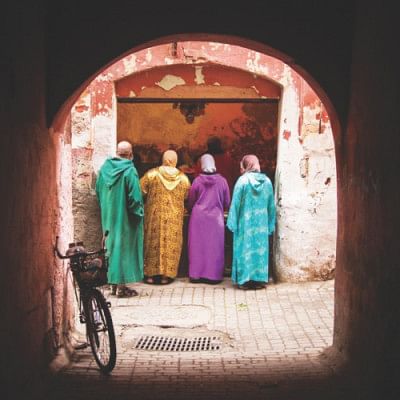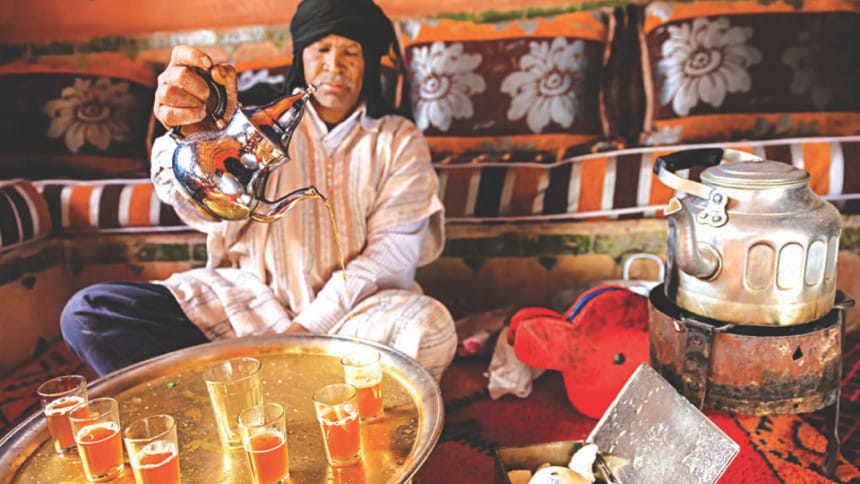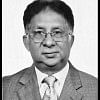An oasis in a volatile region

The Arab Spring that started with the self immolation of fruit vendor Mohamad Bouazizi in the Tunisian city of Sidi Bouzid in December 2010 had all the markings of a people's revolution breaking out against long running autocratic governments, especially in North Africa and the Middle East. For a time it seemed to succeed, as was evident with the overthrow of President Ben Ali in Tunisia in January 2011 and Hosni Mubarak in Egypt shortly thereafter. This was followed by the violent overthrow and killing of strongman Muammar Gaddafi in Libya in February of the same year. The world reacted to these dramatic events with guarded optimism, hoping that the curtain on the age of totalitarianism that had defined most of the region was about to drop and a new era of democracy would flourish. Many drew comparisons between this and the tectonic changes in Eastern Europe in the late nineteen nineties with the fall of the Berlin Wall and the collapse of the Soviet Union. As things stand today, such optimism was clearly premature, as much of North Africa and the Middle East have since become synonymous with extremist violence, political uncertainty, radicalised terrorism, death and wanton destruction. The main reason behind the initial success of the Arab Spring was the people's complete disaffection with their leadership whom they saw as being far removed from the masses, their style of governance as brutal and whose control on the state apparatus as total.
Amidst this sea of turmoil, uncertainty and instability, the country that has so far remained protected is Morocco. Lying across the Strait of Gibraltar on the Mediterranean and looking out on the Atlantic from the northwest shoulder of Africa, Morocco is led by a benevolent Monarch, King Muhammad VI, who has remained largely connected with his people and has been responsive to their needs. Since succeeding his father King Hassan II in in 1999, King Muhammad VI has brought about significant political, social and economic reforms that has given this beautiful country stability and marked prosperity, laden as it is with a rich and a proud history.

In 1660 the Alawite dynasty came to power. It is a sherif dynasty that descended from Prophet Muhammad and one that rules Morocco to this day. European interest in Morocco became apparent with the arrival of the French and the Spanish on its shores in the nineteenth century. In 1904, France and Spain concluded a secret agreement that divided Morocco into zones of French and Spanish influence, with France controlling almost all of Morocco and Spain controlling the small southwest portion, which became known as Spanish Sahara. Morocco grew into an even greater object of European rivalry by the turn of the century, almost leading to a European war in 1905 when Germany attempted to gain a foothold in the country as a passage to Africa. The Algeciras Conference of 1906 gave more control to the Sultan of Morocco, King Muhammad V. As nationalism took deeper roots during the Second World War and the process of decolonisation spread across the globe following that, France and Spain recognised the independence and sovereignty of Morocco in 1956. At his death in 1961, Muhammed V's son succeeded him as King Hassan II. In the 1990s, King Hassan II adopted the politics of openness, which allowed for significant political freedom while at the same time retaining power for the Monarchy. In August 1999, King Hassan II died after 38 years on the throne and his son, Prince Sidi Muhammed, was crowned King Muhammed VI. Since then the King has pledged to make the political system more open, allow greater freedom of expression, and support economic reform. He has also granted more rights for women. This process of the country's long evolution has given rise to globally recognised pluralist centres like Casablanca, Marrakesh, Fes and Tangier, with Rabat, the picturesque capital, serving as the unifying element. The King also promulgated new laws that gave more power to the local governments. The country has emerged as a model of socio-communal harmony where people of the Christian and Jewish faiths cohabit at peace with the overwhelming majority Muslims and enjoy the same rights. The general people are cultured, polite and welcoming. Arabic and French are spoken all over and the use of English is being encouraged. The country is a healthy mix of Afro-Arabic and Mediterranean flavour.

Among the principal challenges that Moroccans, and King Muhammad VI, face in the present global scenario is to shield their country from the rise and spread of violence from extremist groups like the Al Qaida and now the so called Islamic State and at the same time not be provoked by xenophobia emanating from across the seas. This is a challenge that Morocco needs to tread with tact but with firmness. There have been incidents that had made global headlines. On May 16, 2003, terrorists believed to be associated with al-Qaeda killed 33 people in several simultaneous attacks. Four bombs targeted Jewish, Spanish, and Belgian buildings in Casablanca. Suicide bombings struck Casablanca in March and April 2007. Authorities were not certain if the attacks were related but the government's response to these has been measured but firm. The resolve is there, as is evident from the fact that sustained engagement with and between the youth and other vulnerable groups to counter radicalisation is taking an institutional shape under state patronage. The response from the people in general has been encouraging. The society as a whole seems determined to preserve Morocco's image of a devout and yet a tolerant society and one that has been able to protect itself from the scourge of faith based violence and intolerance that is afflicting the immediate region and beyond.
All this comes at a time when the Moroccan government has remained focused on ensuring economic growth, with emphasis on agriculture and creating a green economy. Infrastructure development has seen the country connected by a modern highway and railway network. A state of the art port in Tangier in the country's northeastern tip now serves as the gateway and the main shipping lane between Africa and Europe. Over the last few years King Muhammad VI has given priority to boosting Morocco's relationship with the countries in Africa while keeping its traditional relationship with the countries of the West intact. This pragmatic approach has given Morocco a much stronger political and economic footprint in the African region and has brought substantial dividends for the country. This is most evident by Morocco's triumphant recent re-entry into the African Union, or AU. Morocco left this body more than three decades ago because of sharp differences over the status of the Saharan region, which Morocco claims as part of its own territory. King Mohammad VI has warmly welcomed this development, describing it as "returning home".
It is in this backdrop that Morocco today stands as an oasis straddling a fractured, violent and volatile region. The challenges are many but the country offers ample opportunities for growth with stability and grounds for continued optimism.
The author is former Foreign Secretary of Bangladesh.

 For all latest news, follow The Daily Star's Google News channel.
For all latest news, follow The Daily Star's Google News channel. 



Comments